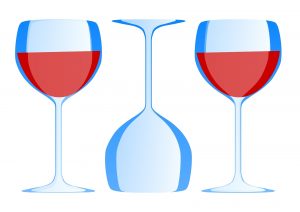
This article is an invitation to examine one’s alcohol use vs alcohol abuse. There is a strong relationship between moods and emotions and drinking alcohol. People who are depressed sometimes seek relief in drinking alcohol. People who drink too much alcohol sometimes become depressed. Even an amount of alcohol that is considered physically healthy according to the Center for Disease Control and prevention, which would be one drink a day for a woman and two drinks a day for a man, can have effects on people’s moods that they may prefer to avoid if they noticed these effects.
This New Your Times article by Bonnie Tsui from June 18, 2016 titled “Drinking by Numbers†was a good reflection on how people might consider and observe their alcohol use. Ms. Tsui writes,
“We tell people to go ahead and have just a little bit of an addictive substance. Let’s acknowledge that
that’s complicated.â€
“Most of us occupy the space between teetotaler and drunkard, but that is a very big span to move along.â€
“Maybe the only way to think about drinking by numbers is not to obsess over how much is too much, but to
be acquainted with what zero feels like-that is, to come back to zero often enough to understand the
relative value of our numbers.â€
There is great value in being mindful of how much alcohol one drinks and sometimes being aware of why one drinks is enlightening. Noticing that one is too irritable or too sad or disliking aspects of one’s job or repeatedly struggling in a relationship, can point to seeking different solutions to these problems. Drinking a little alcohol can be festive, and it can be relaxing, but it cannot solve real problems in one’s life or sooth serious emotional distress. Drinking alcohol is certainly not a treatment for depression, anxiety, or insomnia. Like many things that one can benefit from being aware of in psychotherapy one can benefit from being aware of one’s alcohol use vs alcohol abuse.

Recent Comments